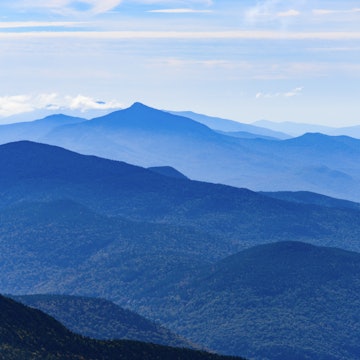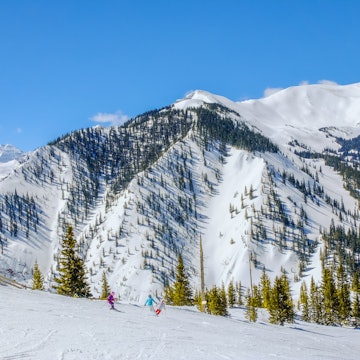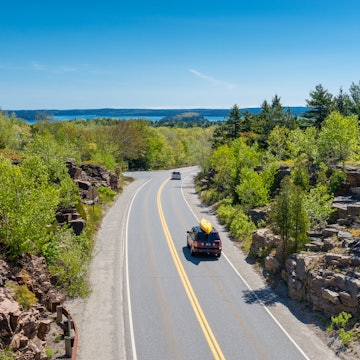

Grab the gals and enjoy all the free things Massachusetts has to offer © Denis Tangney Jr / Getty Images
The sixth-smallest state in the union, Massachusetts is nevertheless chock-full of attractions, from fascinating museums and historic sites to delightful cities and towns and areas of spectacular natural beauty.
It’s also expensive – hotels, meals and admission tickets can easily add up to a small fortune if you’re not careful. Fortunately, there are plenty of fantastic things to do and places to visit that won’t cost a penny, beyond the cost of getting there. Here are some of the best free experiences to be had around the Bay State.
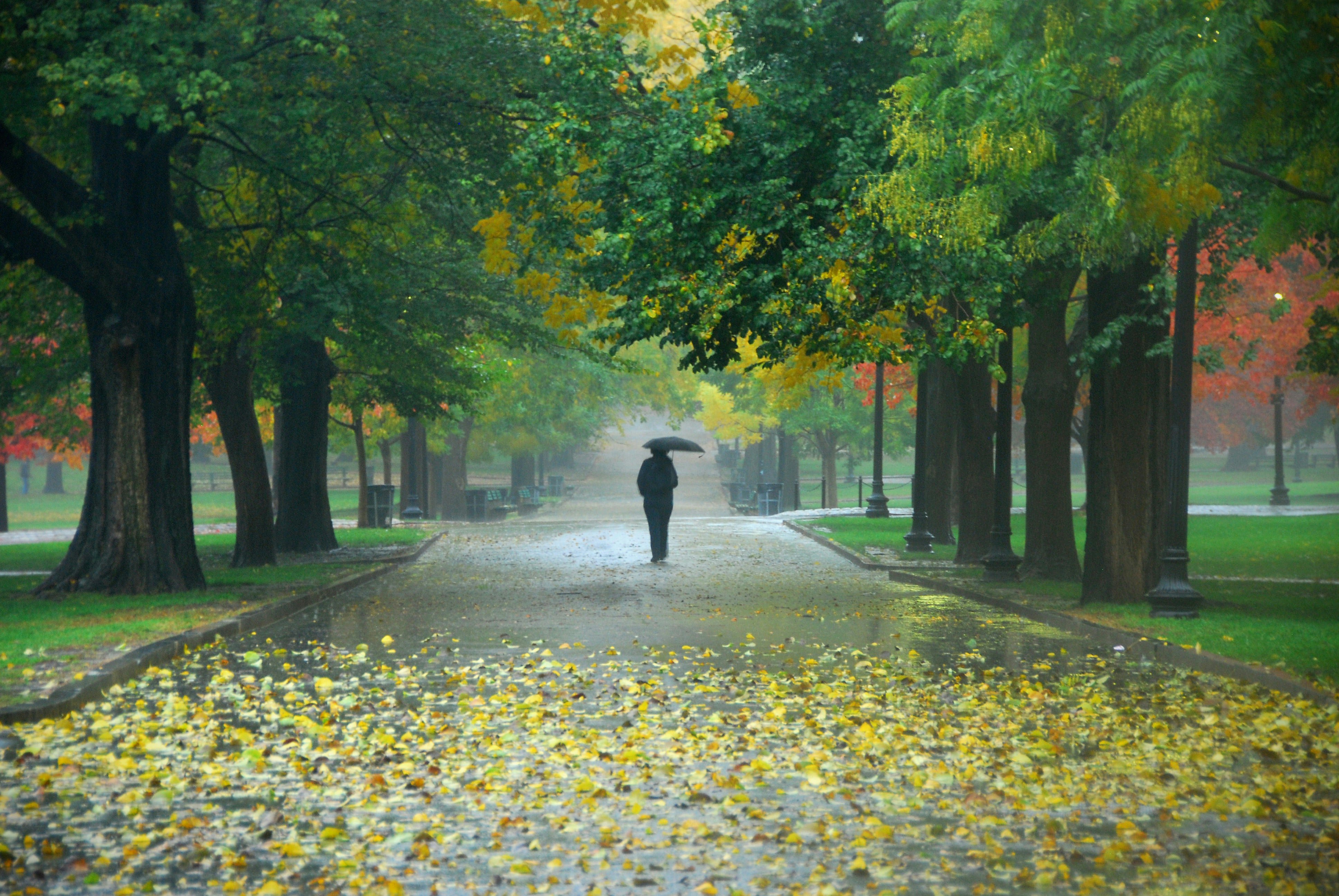
Boston’s Freedom Trail
For a crash course in Revolutionary War history, take a walk on the Freedom Trail. From the Boston Common, where British troops encamped and colonial militia mustered, to the Bunker Hill Monument, marking the site of the first major battle of the war, the 2.5-mile route winds past 16 significant sites related to the struggle for independence, most of which are free of charge.

Boston Public Library
Overlooking Copley Square, the palatial Boston Public Library is widely considered a masterpiece of 19th-century American architecture. Designed by Charles Follen McKim around a courtyard modeled after a Roman palazzo, it has murals by John Singer Sargent, Edwin Austin Abbey and Pierre Puvis de Chavannes, bas-relief bronze doors by Daniel Chester French, sculptural elements by Augustus and Louis Saint-Gaudens and vaulted mosaic ceilings soaring above marble walls and staircases.

Boston parks
Some of Boston’s greatest delights can be found in its many city parks and gardens, from time-honored classics like the Boston Common and the Public Garden to equally popular newer parks such as the Rose Kennedy Greenway, a vibrant 1.5-mile expanse filled with gardens, fountains and art installations. For waterfront recreation, head to the three-mile Charles River Esplanade or take a stroll on the Harborwalk, a 43-mile path along Boston Harbor.
Exploring history and more in Boston's best neighborhood
Arnold Arboretum
Owned by Harvard University, the Arnold Arboretum spreads over 281 acres in Boston’s Jamaica Plain neighborhood. It's one of the world’s foremost collections of temperate woody plants, with walking paths meandering through forest and groves, past ponds and up hills with views of the Boston skyline. Open year-round, the arboretum is particularly lovely in spring, when its famous lilacs bloom, and autumn, when many trees turn brilliant hues of red and gold.

Mount Auburn Cemetery
History and memory harmonize with natural beauty and tranquility at Mount Auburn Cemetery in Cambridge. Buried here are well-known figures from almost every sphere of human endeavor, including luminaries such as poet Henry Wadsworth Longfellow and artist Winslow Homer.
Many of the monuments are works of art as much as grave markers. For magnificent views, climb the 62-foot Washington Tower atop the cemetery’s highest ground (open April-October).
Mount Auburn is also known as an outstanding birdwatching destination, particularly in spring, when dozens of migrant species join year-round avian residents in the cemetery’s 175 verdant acres.
Cemetery tourism: an ethical traveller's guide to graveyards
Lexington and Concord
On April 19, 1775, British troops marching to seize a rumored stash of weapons clashed with colonial militiamen in a series of skirmishes that sparked the start of the American Revolution. From the town green in Lexington, where the first shots were fired, to the North Bridge in Concord, where a larger battle took place, numerous historic sites, most of them free, recall the momentous events of that day. Start at the visitor center near the Battle Green in Lexington, from which most points of interest are within a few minutes’ walk.
From Lexington, follow the Battle Road (Route 2A) to Lincoln and Concord, where Minuteman National Historical Park preserves several significant locations. There are visitor centers near the Lexington-Lincoln border and at the North Bridge.
Lowell Folk Festival
The second-largest free folk festival in the country, this vibrant three-day annual event takes place in late July in historic Lowell, known for its 19th-century textile mills and factories. The festival features ethnic food vendors, artists and craftspeople, street performers and a diverse mix of traditional and world music concerts on multiple stages. The surrounding area is part of Lowell National Historical Park, which preserves sites related to the city’s industrial heritage.
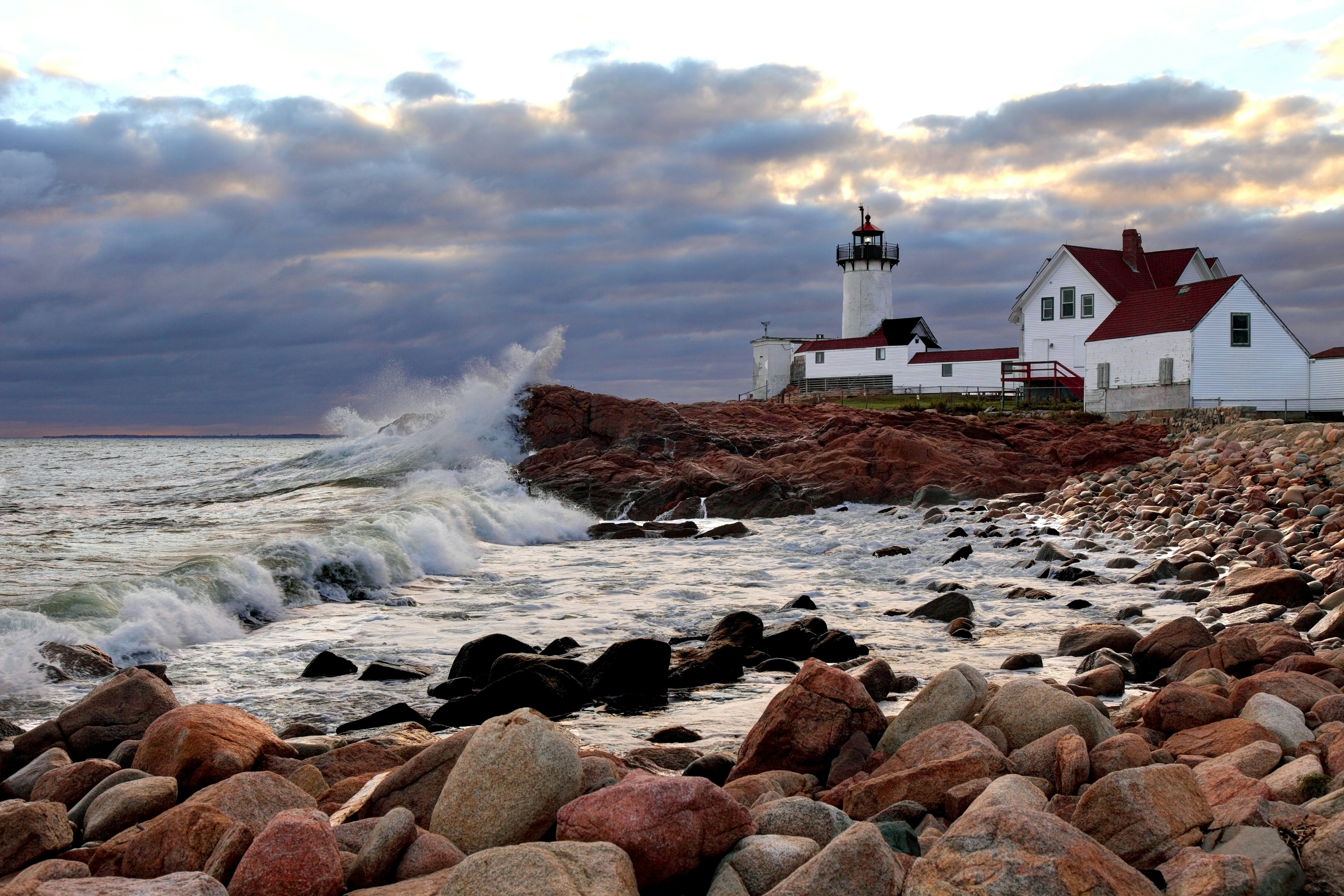
Essex Coastal Scenic Byway
This 90-mile route through 14 coastal communities north of Boston reveals a sublime mix of history, culture and scenery. Stop in Salem for historic architecture, plus sites related to the city’s illustrious maritime past and the infamous 1692 witchcraft trials. On Cape Ann, don’t miss beautiful Gloucester and Rockport, with thriving arts colonies and intimate ties to the sea.
Other highlights include Ipswich, filled with well-preserved 17th- and 18th-century houses, and Newburyport, a thriving harbor town brimming with galleries, shops and restaurants, as well as gorgeous beaches and a national wildlife refuge on its doorstep. If you don’t have a car, you can reach most of the communities along the byway by commuter rail from Boston.
Historic lighthouses
If you like lighthouses, you’ll love Massachusetts. The state’s shores and islands are dotted with dozens of picturesque beacons, many of them dating from the 19th century or earlier. Some are located on islands and best seen by boat, but many others are easily accessible and in some cases allow visitors inside.
Many of the state’s most beautiful lighthouses are found on Cape Cod, Martha’s Vineyard and Nantucket, but there are also several worth visiting in and around Boston and on the North Shore.

The Cape Cod Rail Trail
This 25-mile paved mixed-use trail follows an old railroad route through seven towns from South Yarmouth to Wellfleet, passing a variety of scenery including kettle ponds, salt marshes, cranberry farms, woodlands and parts of the Cape Cod National Seashore. There’s free parking at trailheads in each town, and bike rentals are available along the trail in Yarmouth, Dennis, Brewster, Orleans and Wellfleet.
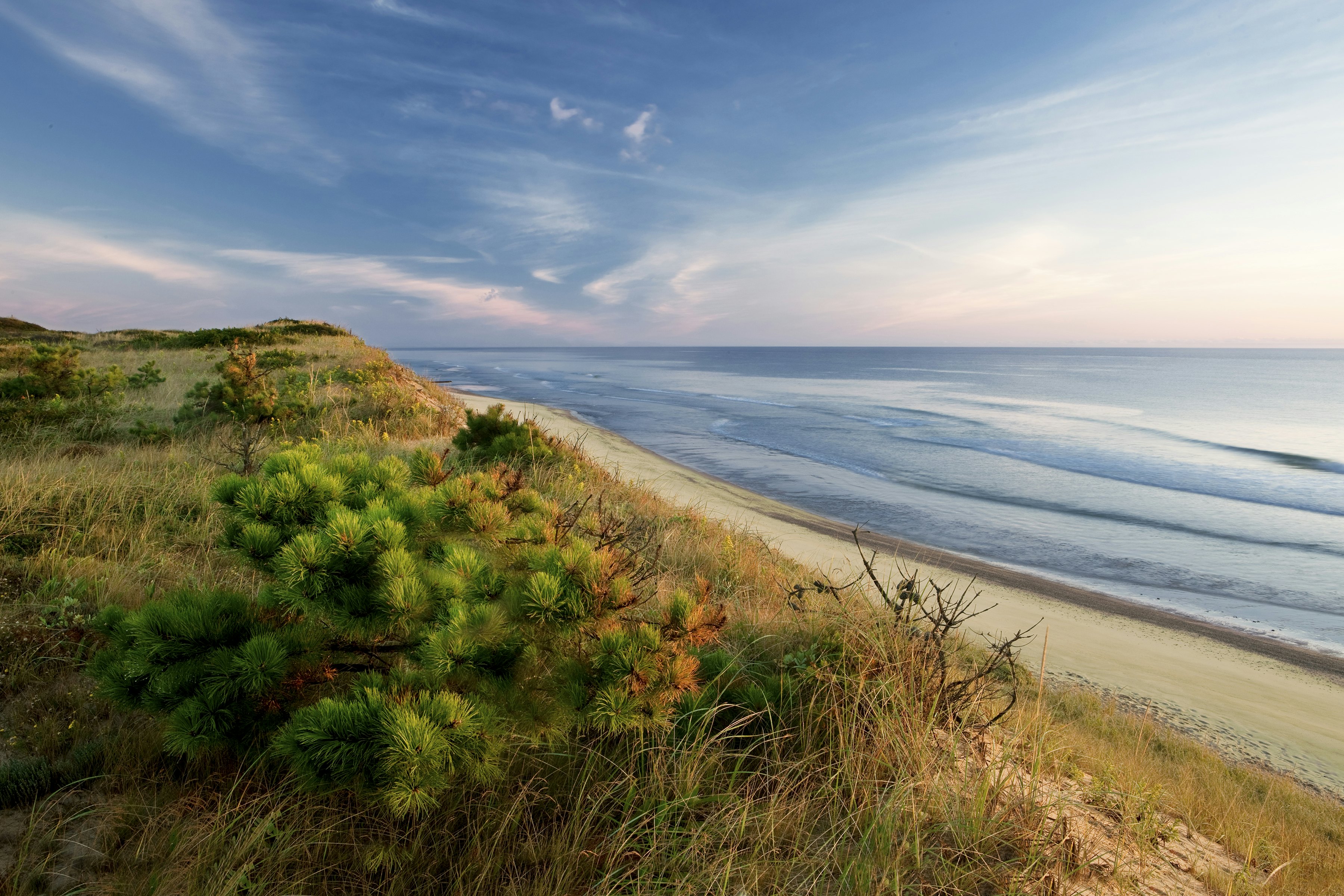
Off-season Cape Cod
A classic beach destination, Cape Cod gets both crowded and expensive during the summer, but if you don’t mind the cooler temperatures, the off-season can be a perfect time to explore the region’s natural beauty.
The Cape Cod National Seashore charges daily entrance fees from May to September but is completely free of charge during the rest of the year, making the colder months a perfect time to walk on year-round trails and pristine beaches that you’ll likely have largely to yourself.

State parks
Recreational opportunities abound in Massachusetts’ diverse network of state parks. Near Boston, Blue Hills Reservation and Middlesex Fells make great escapes with many miles of trails through mixed terrain.
In central Massachusetts, Quabbin Reservoir covers 39 square miles, with 181 miles of protected shoreline. Head to Quabbin Park at the southern end for views, trails and a visitor center about the reservoir, which provides drinking water for 40 percent of the state’s population.
Other gems of the state parks system include Halibut Point State Park in Rockport and Mount Greylock State Reservation in the Berkshires, surrounding the state’s highest peak. Note that while state parks and reservations are free, a few charge parking fees, which are significantly higher for out-of-state vehicles than for cars with Massachusetts plates.

The Bridge of Flowers
What do you do with a decommissioned bridge that’s become an eyesore overgrown with weeds? You turn it into a garden, of course. That’s what happened in the village of Shelburne Falls in northwestern Massachusetts in 1929, when a local women’s club converted an industrial bridge across the Deerfield River into a lush garden filled with flowering trees, shrubs, and other plants.
A volunteer Blossom Brigade is responsible for planting and maintaining the glorious display, which is open to pedestrians from April 1 to October 30.

The Mohawk Trail
One of the country’s first auto touring routes, opened in 1914, the 69-mile Mohawk Trail scenic byway – a portion of Massachusetts Route 2 – follows an ancient Native American hunting and trade route, meandering over hills and rushing rivers, through deep forests and appealing historic towns from Williamstown to Greenfield. The route is beautiful in either direction, but traveling eastward allows you to catch some sweeping views as you descend from the Berkshires to the Connecticut River Valley.
Free museums
Boston has a wide range of free attractions, including the Bunker Hill Museum, the Massachusetts State House and quirkier sites like the Waterworks Museum, but throughout Massachusetts you’ll also find free college and university museums including the Williams College Museum of Art and the Rose Art Museum at Brandeis.
Many museums statewide also have free or reduced admission on certain days of the week or month, so check websites for possible deals. And if your name happens to be Isabella, you’re in luck: you’ll be admitted free any day of the year at Boston’s gorgeous Isabella Stewart Gardner Museum.
You may also like:
Why now is the perfect time to visit Boston
Enjoy a seaside escape at these 10 Massachusetts beaches
From coastal drives to historic trails, these are Massachusetts' best road trips








